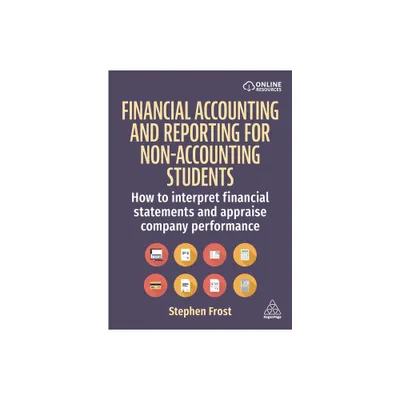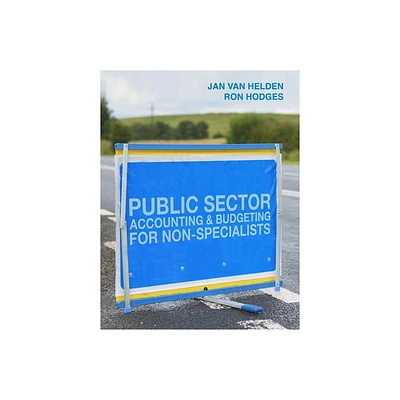Home
Understanding Financial Accounting: A guide for non-specialists
Loading Inventory...
Barnes and Noble
Understanding Financial Accounting: A guide for non-specialists
Current price: $85.99


Barnes and Noble
Understanding Financial Accounting: A guide for non-specialists
Current price: $85.99
Loading Inventory...
Size: OS
*Product Information may vary - to confirm product availability, pricing, and additional information please contact Barnes and Noble
Do your students struggle to engage with financial accounting topics? Look no further than
Understanding Financial Accounting
to help them actively engage with the content, understand the key concepts, and advance their analysis skills.
Writing specifically for those with no background in accounting, the authors focus on how to extract the information that will contribute to business decision making. Their conversational and captivating style makes even technical and complex principles unambiguous and immediately accessible.
A recurring case study, contextual examples, and real-world financial statements from multinational companies are interwoven throughout, demonstrating the principles in practice. Winfield, Graham, and Miller illuminate the relevance of IFRS and financial statement literacy to non-accountants, as well as guiding students towards carrying out analysis autonomously.
Students are also encouraged to develop their independent research and critical thinking skills by attempting a series of end-of-chapter questions. In addition, the book is complemented by the following online resources to support students and lecturers.
Digital formats and resources
is available for students and institutions to purchase in a variety of formats, and is supported by online resources.
The ebook offers a mobile experience and convenient access along with self-assessment activities, functionality tools, navigation features, and links that offer extra learning support: www.oxfordtextbooks.co.uk/ebooks http://www.oxfordtextbooks.co.uk/ebooks.
Online resources for students:
- Additional case studies accompanied by questions and answer guidance
- Multiple-choice-questions with instant feedback
- Further real-world examples
- Further worked examples
Online resources for lecturers:
- Instructors' guide to using the book
- Instructors' guide to setting assessments
- PowerPoint slides
Understanding Financial Accounting
to help them actively engage with the content, understand the key concepts, and advance their analysis skills.
Writing specifically for those with no background in accounting, the authors focus on how to extract the information that will contribute to business decision making. Their conversational and captivating style makes even technical and complex principles unambiguous and immediately accessible.
A recurring case study, contextual examples, and real-world financial statements from multinational companies are interwoven throughout, demonstrating the principles in practice. Winfield, Graham, and Miller illuminate the relevance of IFRS and financial statement literacy to non-accountants, as well as guiding students towards carrying out analysis autonomously.
Students are also encouraged to develop their independent research and critical thinking skills by attempting a series of end-of-chapter questions. In addition, the book is complemented by the following online resources to support students and lecturers.
Digital formats and resources
is available for students and institutions to purchase in a variety of formats, and is supported by online resources.
The ebook offers a mobile experience and convenient access along with self-assessment activities, functionality tools, navigation features, and links that offer extra learning support: www.oxfordtextbooks.co.uk/ebooks http://www.oxfordtextbooks.co.uk/ebooks.
Online resources for students:
- Additional case studies accompanied by questions and answer guidance
- Multiple-choice-questions with instant feedback
- Further real-world examples
- Further worked examples
Online resources for lecturers:
- Instructors' guide to using the book
- Instructors' guide to setting assessments
- PowerPoint slides


















